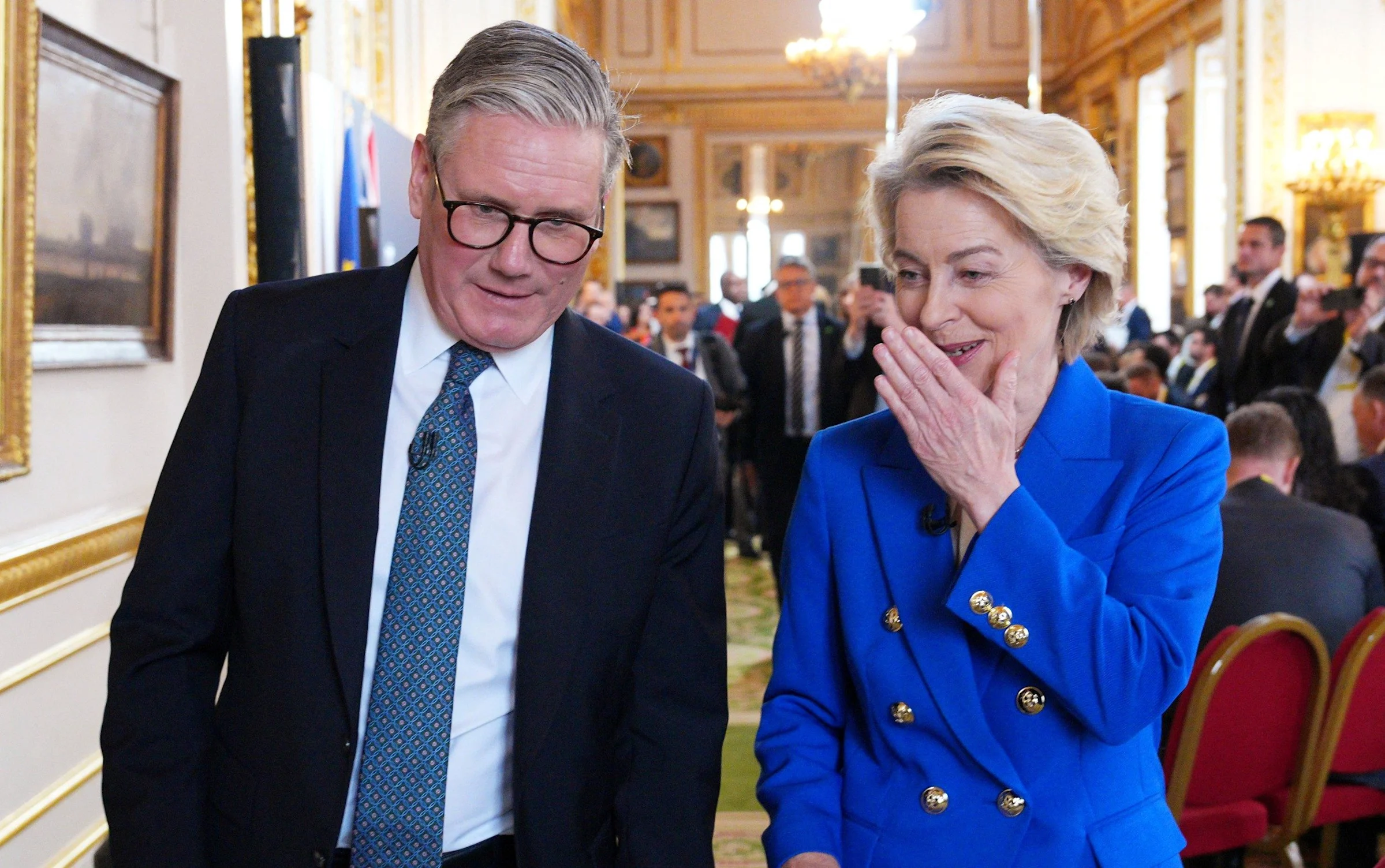By Joe Barnes
Copyright yahoo

The Government will have to concede to EU demands on youth mobility before signing a deal on food safety.
The European Union is refusing to finalise one of Sir Keir Starmer’s Brexit reset priorities unless No 10 accepts a higher number of temporary workers from Europe, negotiators have said.
Both sides agreed to pursue individual pacts as part of a wide-ranging reset of post-Brexit trade terms earlier this year.
But now Brussels is insisting any progress on the deal to ease export checks on food is conditional on the number of young people that Downing Street will allow the right to live, work and study in Britain.
It puts Sir Keir under added pressure to accept a higher total number of people from the EU to secure an election manifesto pledge.
Previously, the Prime Minister surrendered access to British waters for European boats for 12 years in exchange for the food safety pact.
Downing Street is pushing to have the Sanitary and Phytosanitary (SPS) deal wrapped up by early 2027, in the hope it will lower the cost of food for British shoppers.
Nick Thomas-Symonds, the Brexit minister, on Wednesday appeared to concede that the youth mobility talks would run in parallel, following talks with Maros Sefcovic, his EU counterpart.
“As we move into this stage of the negotiations, I have already set out the timetable on the SPS agreement,” Mr Thomas-Symonds told a think-tank event in Brussels.
“But obviously what we want to do is to be able to then do similar things in other parts of the negotiation. But we obviously want to move forward with it all as a package.”
The Telegraph understands that the Government expects Brussels to demand the same timetable for its desired youth mobility deal to be done.
UK-EU summit
During initial talks over the Brexit reset, Britain agreed to dynamically align to EU rules on food to ease the number of checks on exports to the bloc.
The Government also agreed to broker a youth mobility scheme that would allow all Europeans under the age of 30 the right to live, work or study in Britain, and vice versa for young Britons.
These were only agreed in principle between both sides at the first post-Brexit leaders summit in May.
But the political pacts hashed out earlier this year still need to be finalised into legally-binding treaties.
This is where the EU’s negotiators will attempt to use Sir Keir’s priority for a food safety deal to secure better terms for young Europeans.
‘Youth experience’ programme cap
In the initial agreement, both sides agreed the scheme’s numbers would be capped but the question over how many participants would benefit from it was left open.
EU countries which pushed hard for the scheme to be included in the Brexit reset, such as Poland and Romania, would like to see the overall number of participants as high as possible.
British sources have said the “youth experience” programme must have a hard cap that ensures it doesn’t impact net migration figures, as the Government grapples to bring them down in light of the worsening small boats crisis.
Brussels has attempted to pair different negotiations together – in what Michel Barnier, its former chief negotiator, described as “parallelism” – to give itself leverage over Britain.
The same method was famously pushed as a “fish for financial services” compromise by the EU, in the hope of giving European boats access to UK waters in return for better conditions for the City of London in the Single Market.
Deploying a similar tactic could see EU negotiators refuse to progress talks on food safety if they do not feel they have secured concessions in discussions over youth mobility.
It is understood that Britain will push the vision that it sees youth mobility as equally beneficial to both sides in a bid to take away some of the advantage from Brussels.
Mr Thomas-Symonds used his speech to the College of Europe in Bruges to sing the proposed scheme’s praises.
“On youth mobility, we believe that giving the opportunity for young people to learn and get experience is vital… giving young people across the UK and EU a chance to study, work, live abroad – build friendships, understanding and creating opportunities,” he said.
Meanwhile, EU capitals on Wednesday agreed Britain’s participation in the bloc’s €150bn SAFE defence programme.
British defence firms will be able to bid for the first rounds of contracts, paid for by cheap loans from the European Commission, in November.
The UK will have to pay for the privilege, with Brussels to decide a fee based on the country’s GDP and how competitive its defence industry is compared to other European nations.



